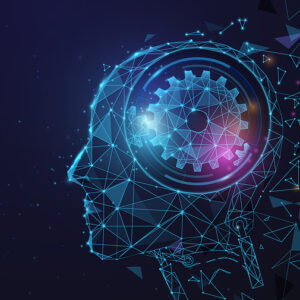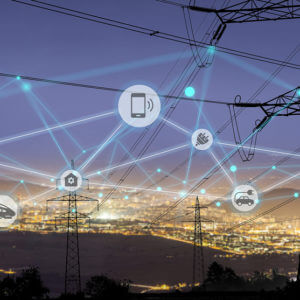The Big One is coming, and it isn’t an earthquake in California or a hurricane in the Atlantic. It is the imminent upending of so many of the world’s norms by artificial intelligence, for good and for ill.
Jobs are being swept away by AI not in the distant future, but right now. A recent Stanford University study found that entry-level jobs for workers between 22 and 25 years old have dropped by 13% since the widespread adoption of AI.
Another negative impact of AI: The data centers that support AI are replacing farmland at a rapid rate. The world is being overrun with huge concrete boxes, Brutalist in their size and visual impact.
Meta Platforms (of which Facebook is part) plans to spend hundreds of billions of dollars to build several massive AI data centers; the first called Prometheus and the second Hyperion.
CEO Mark Zuckerberg said in a post on his Threads social media platform: “We’re building multiple more titan clusters as well. Just one of these covers a significant part of the footprint of Manhattan.”
Data centers are voracious in their consumption of electricity and are blamed for sending power bills soaring across the country.
But AI has had a positive impact on the quality of medicine, improving accuracy, consistency and efficacy, according to the National Institutes of Health.
Predictive medicine is on a roll: Alzheimer’s Disease and some cancers, for example, can be predicted accurately. That raises the question: Do you want to know when you will lose your mind or get cancer?
Where AI is without downside is medical “exaptation.” That happens when a drug or therapy developed for one disease is found to be effective with another, opening up a field of possibilities.
AI also offers the chance of shortening clinical trials for new drugs from years to a few months. Side effects and downsides can be mapped instantly.
Life expectancy is predicted to increase substantially because of AI. Omar Hatamleh, an AI expert and author, told me, “A child born today can expect to live to 120.”
Likewise, predictive maintenance with AI is already useful in forecasting the failure of industrial plants, power station components and bridges.
Oh, and productivity will increase across the board where AI and AI agents — the AI tools developed for special purposes — are at work.
The trouble is AI will be doing the work that heretofore people have done.
Pick a field and speculate on the job losses there. This may be fun to do as a parlor game, but it is deeply distressing when you realize that it could happen in the very near future — like in the next year.
Most are low-skilled white-collar jobs, such as those in call centers, or in medical offices checking insurance claims, or in an accounting firm doing bookkeeping. In short, if you are a paper pusher, you will be pushed out.
Look a little further — maybe 10 years — and Uber, which has invested heavily in autonomous vehicles, will have decided that they are ready for general deployment. Bye-bye Uber driver, hello driverless car.
Taxis and truck drivers might well be the next to get to their career-end destinations quicker than they expected.
By the way, autonomous vehicles ought to have fewer accidents than cars with drivers do, so the insurance industry will take a hit and lots of workers there will get the heave-ho. And collision repairs may be nearly outdated.
These aren’t speculation; they are real possibilities in the near future. Yet the political world has been arguing about other things.
As far as I am aware, when the leadership of the U.S. military gathered at the Marine Corp Base Quantico in Virginia recently to get a pep talk on shaving, losing weight and gender superiority, they didn’t hear about how AI is transforming war and what measures should be taken. Or whether there will be work for those who leave the military.
The Big One is coming, and the politicians are worrying about yesterday’s issues. That is like worrying about your next guest list when an uninvited guest, a tsunami of historic proportions, is coming ashore.


